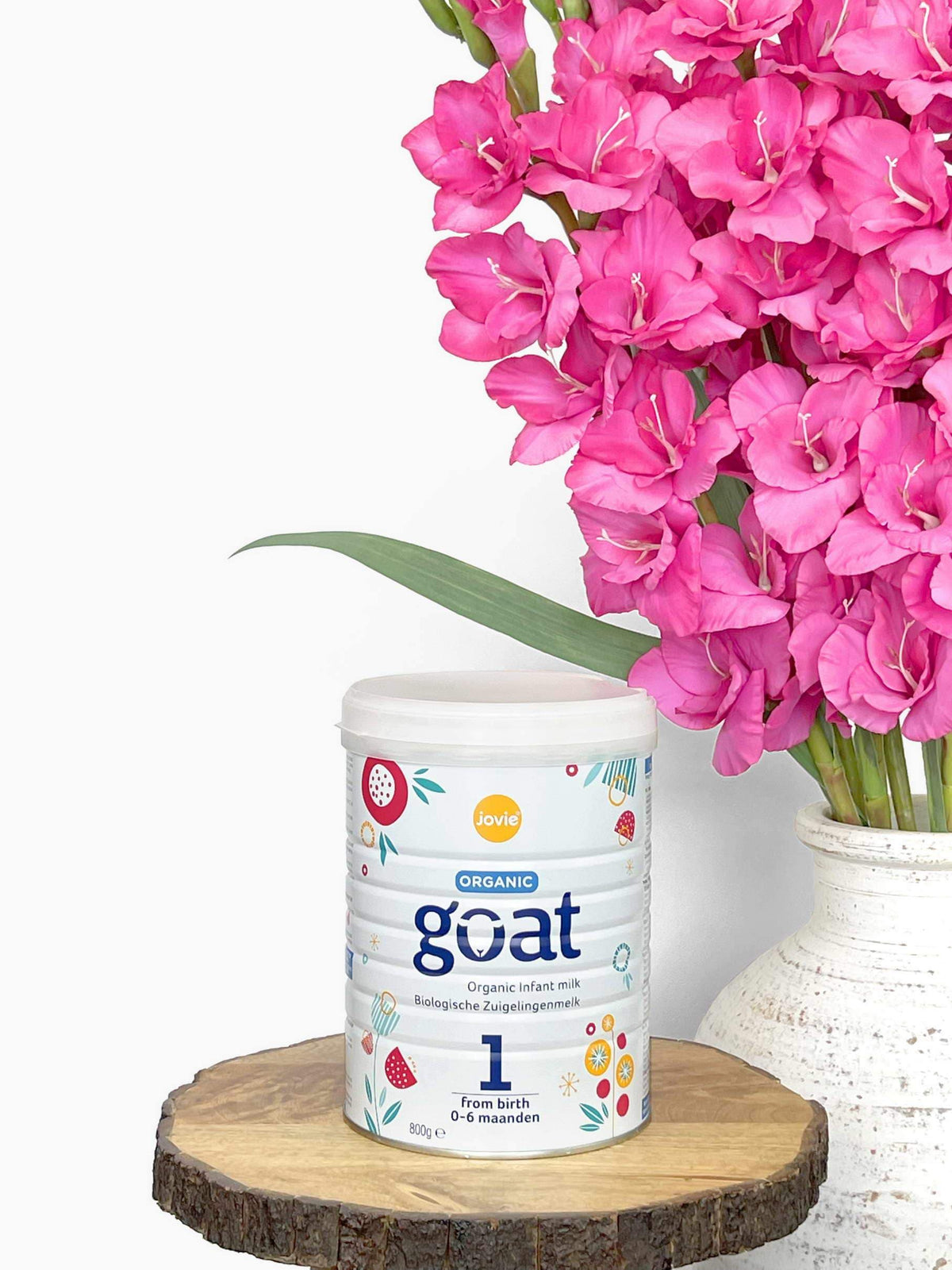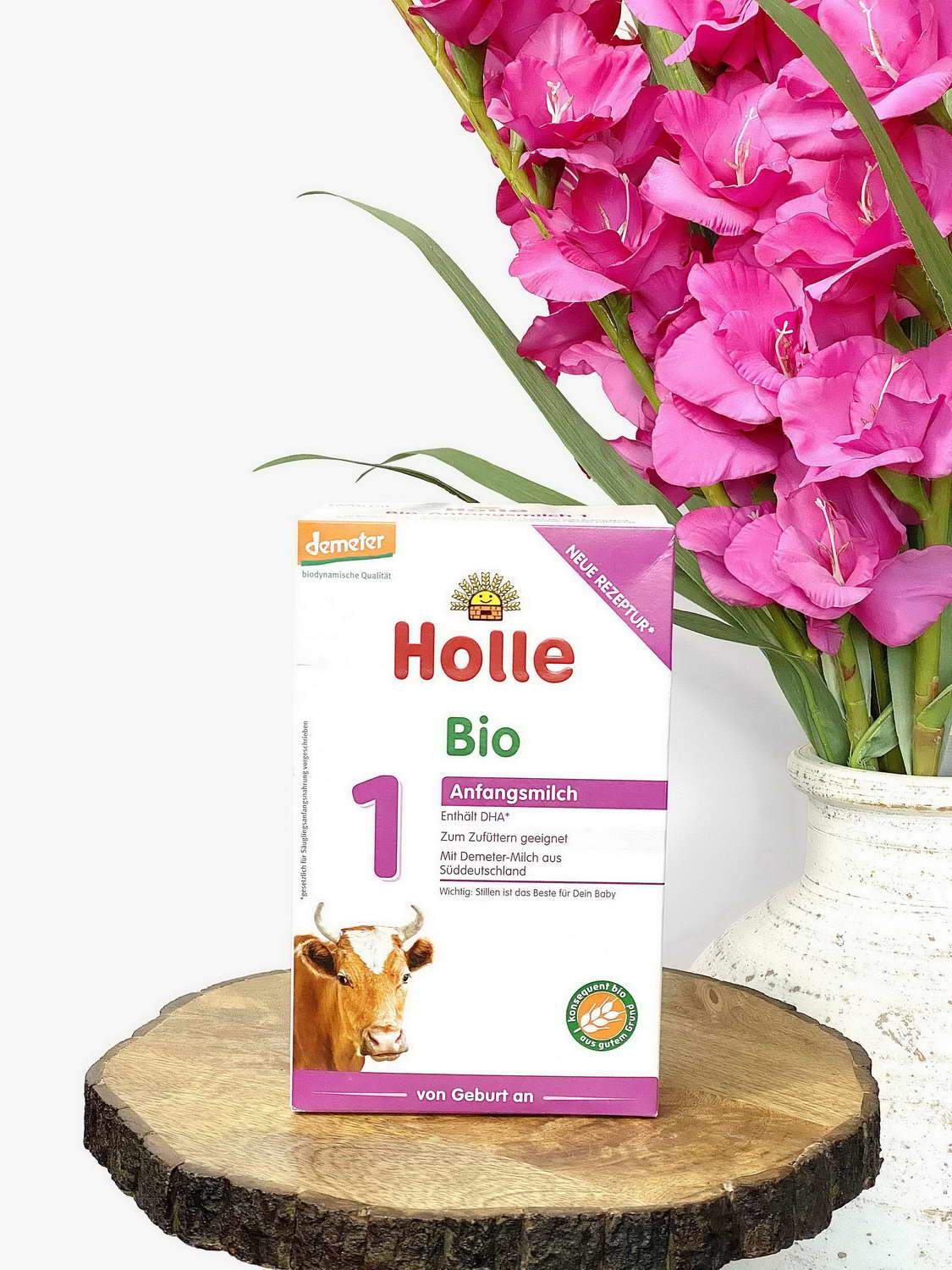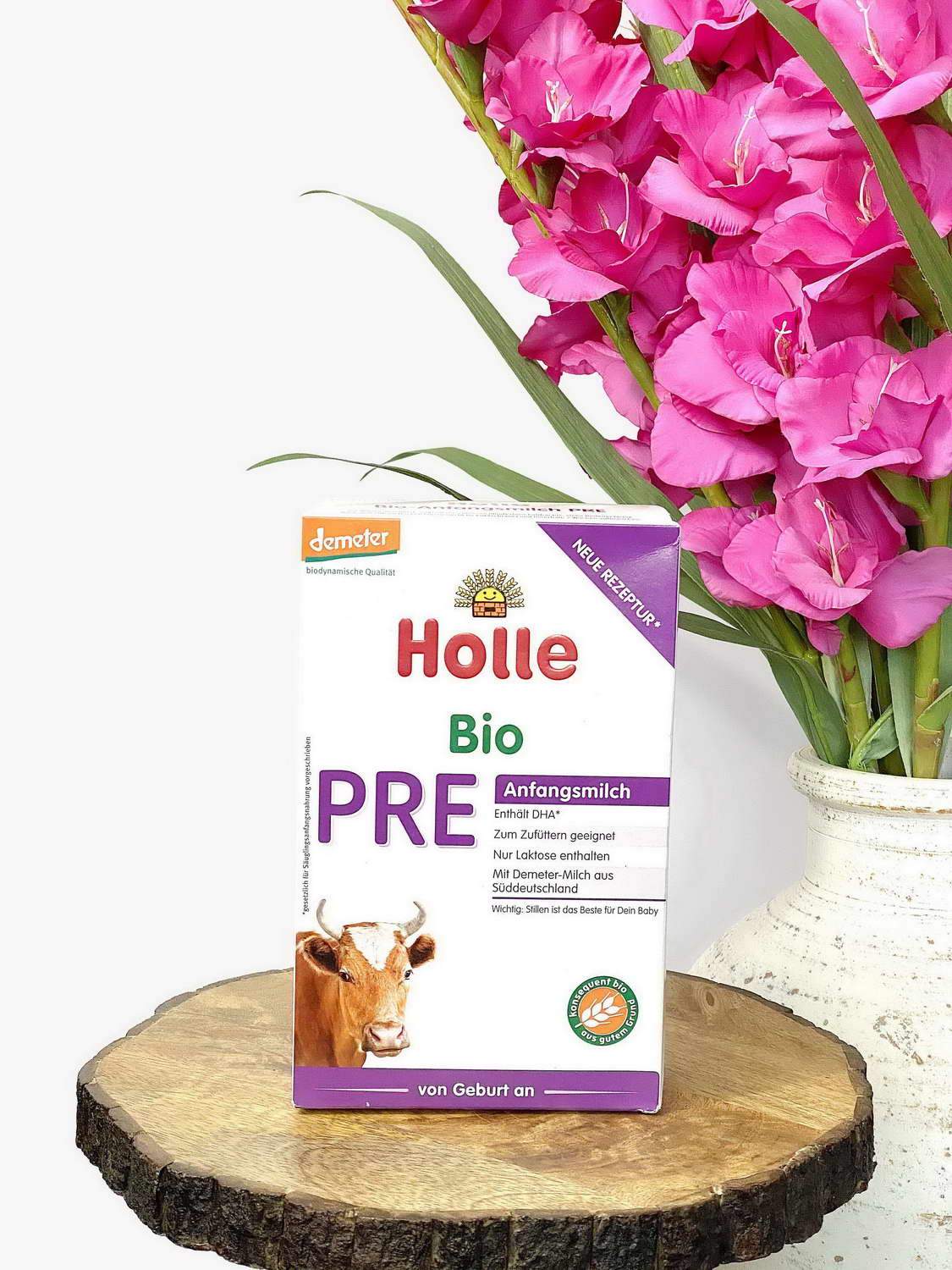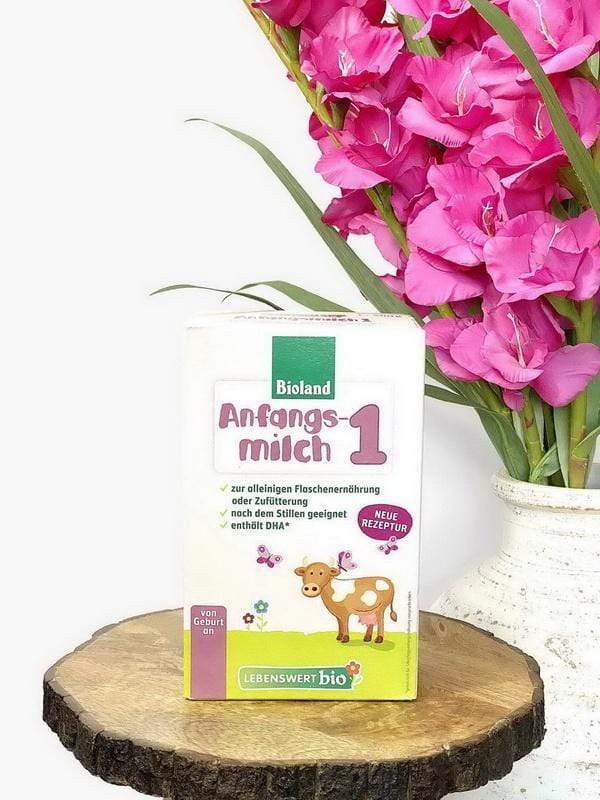Your cart is empty
Shop formulasYou have not added any favorites yet.
Shop formulasRecommended products
When Do Babies Stop Drinking Formula?
Written by Renee Published on 07/30/24 Read Time 12 min

Time and research have led your family to the best baby formula available. As your baby grows and thrives, they have now become a toddler!
At this stage, as solid food is added to their diet, it's time to transition away from formula. You might have questions such as, "How will we transition away from formula?" or "How do I ensure my little one still gets all the nutrients they need when I stop using formulas?"
In this article, we will address these critical considerations, including how to transition away from baby formula while ensuring your toddler receives all the nutrition they need once weaning is complete.
Table of Contents:
1. When Should I Wean My Baby Off Formula?
2. What Age Does Weaning Begin?
3. Do Babies Need Formula After 12 Months?
5. Is Your Baby Ready for Transitioning Away from Formula?
6. How to Transition from Baby Formula
7. When to Slow Down or Stop Weaning off Baby Formula?
8. Milk Alternatives for Toddlers

What Should I Wean My Baby Off Formula?
Lorem ipsum dolor sit amet, consectetur adipiscing elit, sed do eiusmod tempor incididunt ut labore et dolore magna aliqua. Ut enim ad minim veniam, quis nostrud exercitation ullamco laboris nisi ut aliquip ex ea commodo consequat. Duis aute irure dolor in reprehenderit in voluptate velit esse cillum dolore eu fugiat nulla pariatur. Excepteur sint occaecat cupidatat non proident, sunt in culpa qui officia deserunt mollit anim id est laborum.
What Age Does Weaning Begin?
As you begin, the most important note we can make is this - the weaning process varies from family to family and baby to baby. While there are some suggestions, there are very few hard and fast rules for weaning.
One rule that is non negotiable is simple: Breast milk or formula is the only nutrition your newborn needs.
After that time, it is not uncommon to start seeing weaning cues from your baby between four and six months.
Weaning Four to Six Months
At four to six months, families may start adding nutrients more than formula or breast milk.
If your pediatrician agrees, parents and caregivers may find that it is the perfect time to introduce solid foods in the form of purees or cereals.
Solids at this age must be secondary only to formula or breast milk to ensure your baby receives all the nourishment they need. (Another unbreakable rule).
Some signs that your baby is ready for solid food introduction typically include beginning to develop the coordination to move solid food from the front of the mouth to the back for swallowing rather than out of their mouths, sitting without support, and showing a desire for food by leaning forward and opening their mouth.
Weaning Six to Twelve Months
For babies 6 months old on upwards it is not unheard of to go straight to finger foods as soon as solids are introduced, bypassing purées, cereals, and mashed-up foods.
This approach is called baby-led weaning.
Baby Led Weaning
Just as it sounds, baby led weaning is letting your little one feed themselves the healthy foods they want right from the start. This method works only for older babies who are at least 6 months old and capable of self-feeding.
This method of weaning allows babies to learn how to chew first, then swallow. It also prevents parents from pushing food, since babies are in control of how much they put into their mouths.
But those aren’t the only benefits. According to advocates and some research, the potential perks of baby-led weaning include encouraging a greater variety of textures and flavors, reducing the risk for child obesity, and promoting fine motor skill development.
Weaning Twelve Month and Up
I think the first thing to know at this age is that your baby does not have to wean off formula or the bottle the moment they turn one.
Gentle guidance and patience is the key to success. After 12 months, your family can start the full weaning process when you are ready.
Do Babies Need Formula After 12 Months?
The good news is that at 12 months you do not have to make the decision one way or another on your baby's birthday.
Families can take their time to transition and weigh the choices available to help their new toddler grow, develop, and thrive with the best nutritional options.
Toddler Formulas
After 10 months you can begin to replace your little one’s infant formula with stage 3 formulas and stage 4 formulas. This powdered nutrition is also known as Toddler Milks or Growing Up Milks.
As new tastes and textures are introduced through solid food, it can be comforting to know that your toddler will receive all the proteins, carbohydrates, vitamins, and minerals needed every day to support healthy growth and development.
Toddler formulas are the perfect addition to a healthy diet. This powder supplement encourages solid food exploration while balancing missing nutrition.
Some toddler milk also includes prebiotics and probiotics to help maintain a healthy gut flora. This is incredibly important as new foods are introduced.

Cow's Milk for Toddlers
When switching to cow’s milk, whole milk is the best option for most toddlers over age 12 months who are not breastfeeding or drinking a toddler formula.
It is important to choose a whole fat option. A child at this age still needs a high level of fat to support rapid brain development and physical growth. Keep in mind that your child will only need two to three cups of whole milk per day.
There are other benefits of whole milk over low-fat milk such as the thicker taste and mouthfeel that toddlers prefer. Whole milk might be a better choice if you have a child who is a picky eater and is not getting enough fat and calories from the new solid food diet.
Whole milk can be a helpful way to supplement some of that missing nutrition, however, you don't want all of your child's calories to come from milk because it does not have all the proteins, vitamins, and minerals needed for a healthy balance.
Talk to your pediatrician or a registered dietitian if you are unsure how to include milk in your child's diet to meet their nutritional needs.
Pro tip for whole milk introduction: If your baby had a temperature preference with their formula, continuing this with the whole cow’s milk for a soothing and familiarity effect can help make the transition easier.
Soy Milk for Toddlers
For sensitive babies, parents may lean toward soy milk as an option. Unfortunately, this is not among the best cow’s milk alternatives for toddlers due to the similar amount of protein.
For example, soy milk is lower in calories than both cow’s milk or toddler formulas. High calories are important for energy, growth, and development.
Soy in daily amounts has also been linked to adverse effects to the immature immune systems, causing diarrhea, soy protein allergies, and can lead to possible health issues like increased risk of breast cancer or prostate cancer later in life.
Is Your Baby Ready for Transitioning Away from Formula?
If you’re unsure whether your baby is ready to switch, paying attention to any signs they may be showing is essential. Remember that you know your little one best, and taking it slow and watching for clear signs is perfectly fine.
If you still have doubts, talking to your child’s pediatrician is a good idea. This will help ensure that your baby is getting enough nutrients from their diet to transition from the current formula, and it’s a proactive step in your baby’s health journey.

How to Transition from Baby Formula
For formula fed babies, cold turkey transitioning is not unheard of, especially when switching from baby formula to toddler formula. The unique nutrition in toddler milks closely mimic breast milk digestively and have the same taste and texture as baby formula. This combination usually makes a seamless match. However, since the ratio of nutrition is slightly different, your baby may take some time to adjust.
WIth cow’s milk, families may find that their babies need a bit more coaxing and time to make the switch without your little becoming fussy or making a fuss. The taste and texture is a little different and the lactose protein can wreak havoc on your toddler’s gut flora at first.
We generally recommend transitioning over a period of a few weeks. This allows your baby’s digestive system to completely adjust to a new formula or cow’s milk. It's best to introduce the new formula or milk gradually by mixing it with the old formula. You can consider following a transition schedule like this:
🥛 Day 1 & 2: 25% toddler formula or cow’s milk; 75% old formula
🥛 Day 3 & 4: 50% toddler formula or cow’s milk; 50% old formula
🥛 Day 5 & 6: 75% toddler formula or cow’s milk; 25% old formula
🥛 Day 7 & up: 100% toddler formula or cow’s milk
Every child is unique and so are your child’s needs, adjust this schedule to best meet your little one’s needs. This process can be done in different extensions of time, varying from using each proportion for two days to even weeks.

When to Slow Down or Stop Weaning off Baby Formula?
By taking your time to transition away from formulas, you will also have time to notice any extreme changes or worries such as dramatic change in their stools or allergy markers such as continuous stuffiness.
If these symptoms do not subside in a few days or get worse in a day or so, talk to your baby’s pediatrician about a potential milk allergy.
Some of the signs your baby may not be able to tolerate cow’s milk include but are not limited to:
❌ Constipation
❌ Diarrhea
❌ Rash
❌ Vomiting
What Do Babies Drink After Weaning off Formula? Other Liquids
Soon your toddler's solid food will be the majority part of nutrition. When not drinking toddler milks or cows milk, you can share other healthy drinks with your little one.
Water
Children under 6 months do not need water (unless properly mixed with baby formula) and should not be drinking water until they start eating solid food.
After 6 months, children can have water minimally when introducing food or in hot weather. After 12 months, your little one will enjoy water when you do, especially after playing outside or with solid food.
Animal Milk
Along with cows milk, goat’s and sheep’s milk can be introduced after 12 months as long as it is pasteurized.
Fruit Juice
Babies under 12 months don’t need juices, however if you decide to give them to your child, make sure to dilute them in a 1:10 parts ratio (1 part of juice, 10 times water). Fruit juices contain a lot of sugars that can cause tooth decay and long term health problems.
Over 12 months we recommend waiting until solid food is well established and only sparingly. You can still continue diluting your toddler’s juice until for as long as you feel necessary (Pro tip: Don’t let your toddler see you diluting it!).
Tea
Overall, there isn’t a lot of research on how herbs or teas affect young children. Check with your pediatrician to get the go ahead for any teas/herbs you plan to give your child.
Even those that are generally considered “safe” may interact with medications they are taking or conditions such as unknown allergies can be exasperated. Of course never offer caffeine to your toddler.
Milk Alternatives for Toddlers
If your toddler is transitioning from a plant-based formula, or if they have been diagnosed with a lactose allergy or intolerance, your family might be interested in exploring a vegan alternative that does not include dairy milk.
Soy
Parents and caregivers often consider fortified or unsweetened soy milk as an alternative, especially when dealing with digestive concerns in children. However, it is essential to note that soy milk should be used as a last resort and under the guidance of your child’s pediatrician.
The American Academy of Pediatrics advises against the use of soy formula for infants and toddlers due to the presence of estrogen-like compounds called isoflavones, which can potentially have adverse effects on the immune and endocrine systems.
Additionally, when children consume substantial amounts of soy, there are potential risks of developing Kawasaki Disease and other developmental concerns.

Weaning from Baby Formula
The first year goes by fast; before you know it, your baby has become a toddler. Even though we would love to see time slow down, your little one will soon be ready to graduate from baby formula to a balanced, solid-food diet.
The exact timing of this transition and the type of milk your toddler will change to is a family decision.
For each step of this journey with your little one, My Organic Company is here for you. We are deeply committed to your child’s nutrition, making it our top priority. From the first to the toddler years, we are happy to provide the best food for growth and development today and for a healthy tomorrow.
Please be aware that this information is based on general trends in babies, and it is not medical advice. Your doctor should be your first source of information and advice when considering any changes to your child’s formula and when choosing your child’s formula. Always consult your pediatrician before making any decisions about your child’s diet or if you notice any changes in your child.
Breastfeeding is the best nutrition for your baby because breast milk provides your child with all the essential nutrients they need for growth and development. Please consult your pediatrician if your child requires supplemental feeding.
Author Bio:
Renee is an infant nutrition consultant and a full-time writer. Due to her experience in seeking better nutrition for her premature daughter, she advocates for European baby formula. Renee is fully committed to contributing value to this critical area of child development as a mother of a large family, foster parent, and adoption supporter.
Renee enjoys camping outdoors, swimming, and hiking with her family when she is not working.
















